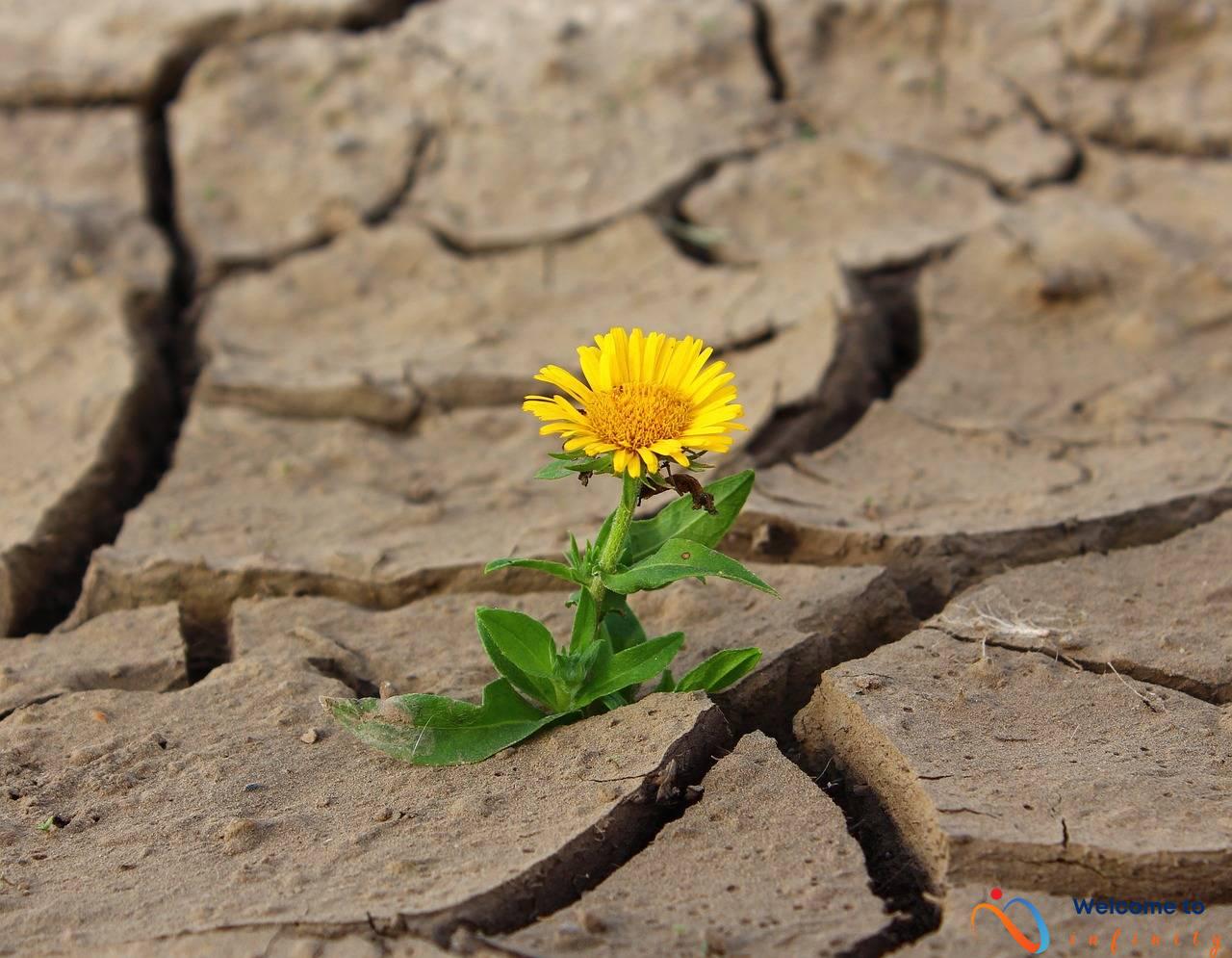Rosacea is a common and chronic skin condition that affects millions of people worldwide. It is characterized by redness, flushing, and sometimes bumps or pimples on the face. While there is no cure for rosacea, natural remedies can be used to manage symptoms and reduce discomfort. these at-home solutions are easy to implement and can help soothe the skin without harsh chemical treatments.
If you suffer from rosacea, you are not alone. According to the National Rosacea Society, around 16 million Americans have this condition. Rosacea can be triggered by various factors, including heat, sun exposure, stress, alcohol, and spicy foods. Managing these triggers is essential in reducing flare-ups and minimizing symptoms.
The good news is that lifestyle habits can play a significant role in managing rosacea symptoms. In particular, adopting an anti-inflammatory diet and exercising regularly can help reduce inflammation and promote overall health. Eating foods rich in antioxidants, such as leafy greens, berries, and nuts, can help fight inflammation and boost the immune system. Gentle exercise, such as yoga or walking, can also improve blood circulation and promote relaxation.
Natural remedies can also be effective in soothing rosacea symptoms. Essential oils, herbal teas, and plant-based extracts can help reduce inflammation and promote skin health. Lavender oil, for example, has anti-inflammatory properties that can help calm redness and irritation. Green tea is high in antioxidants and has been shown to improve acne and rosacea symptoms. Aloe vera is another plant-based remedy that can help soothe and hydrate the skin, reducing redness and discomfort.
When it comes to skincare, choosing the right products and treatment is essential. You should avoid harsh chemicals and fragrances that can irritate the skin. Instead, opt for gentle cleansers and moisturizers that are designed for sensitive skin. Sun protection is also crucial, as UV radiation can aggravate rosacea symptoms. Use a broad-spectrum sunscreen with an SPF of at least 30 and wear a hat or seek shade when outside in direct sunlight.
If you experience persistent redness or bumps on your face, it is essential to consult with a doctor or dermatologist for proper diagnosis and treatment. In some cases, prescription medication may be required to manage symptoms.
What is Rosacea?
Rosacea is a common and chronic skin condition that causes redness, inflammation, and bumps on the face. It usually affects people between the ages of 30 and 50, and it's more common in women than men. The exact cause of rosacea is unknown, but some factors that may trigger it include genetics, sun exposure, stress, and certain foods and drinks.
The signs and symptoms of rosacea can vary in severity and duration. Some of the most common symptoms include flushing or blushing on the cheeks, nose, forehead, or chin, persistent redness, visible blood vessels, bumps, and pimples. In some cases, the eyes may also be affected, causing dryness, itching, and redness.
Rosacea is a chronic condition that can flare up and subside over time. It's important to seek medical attention if you suspect you have rosacea, as it can be mistaken for other skin conditions or infections. A dermatologist can diagnose rosacea and recommend a treatment plan that may include prescription medication, topical creams, and lifestyle changes to manage symptoms.
Causes of Rosacea
Rosacea is a chronic skin condition that is characterized by redness, flushing, and visible blood vessels. While the exact cause of rosacea is unknown, researchers believe that it is a combination of genetic and environmental factors.
Several factors are known to trigger rosacea flare-ups, including:
- Exposure to sunlight and hot temperatures
- Stress, anxiety, and emotional triggers
- Certain foods and beverages, such as spicy foods, alcohol, and caffeine
- Weather changes, including wind, humidity, and cold temperatures
- Some medications, such as corticosteroids and blood pressure medications
To prevent or reduce rosacea flare-ups, it is essential to identify and avoid your triggers. Keeping a journal to track your symptoms and potential triggers can be helpful. Additionally, adopting healthy lifestyle habits can help you better manage symptoms and reduce the likelihood of flare-ups.
Some tips for preventing rosacea flare-ups include:
- Avoiding sun exposure by wearing hats and using sunscreen with SPF 30 or higher
- Avoiding hot beverages, spicy foods, and alcoholic and caffeinated beverages
- Avoiding harsh skincare products and fragrances
- Minimizing stress through exercise, meditation, or other stress-reducing techniques
- Maintaining a healthy diet and staying hydrated
If you experience frequent or severe rosacea symptoms, it is essential to consult a healthcare professional who can recommend appropriate treatment options, including prescription medications and laser therapy.
Healthy Lifestyle Habits
If you suffer from rosacea, making simple lifestyle changes can help manage your symptoms and reduce flare-ups. One of the most effective ways to do so is by adopting a healthy lifestyle. Here are some healthy habits you can adopt:
- Follow an Anti-Inflammatory Diet: Eating foods that are rich in anti-inflammatory nutrients can help reduce inflammation and improve overall health. Include a variety of colorful fruits and vegetables, healthy fats, and lean protein sources in your diet.
- Engage in Gentle Exercise: Engaging in physical activity can help improve blood circulation, reduce stress, and improve overall health. However, rigorous exercise can trigger rosacea, so choose gentle or low-impact exercises such as walking, swimming, or yoga.
- Practice Stress-Reducing Techniques: Stress is a major trigger for rosacea, so finding ways to manage stress is crucial. Mindful practices such as meditation, deep breathing, and yoga can help reduce stress and improve overall well-being.
By adopting these healthy lifestyle habits, you can reduce inflammation, manage stress, and improve overall health, which can help manage your rosacea symptoms.
Anti-Inflammatory Foods
Rosacea is an inflammatory skin condition that can cause redness, swelling, and discomfort. Incorporating anti-inflammatory foods into your diet may help reduce inflammation in the body and alleviate rosacea symptoms. Here are some of the best foods to eat:
- Fatty Fish: Cold-water fatty fish such as salmon, tuna, and mackerel are rich in omega-3 fatty acids, which have anti-inflammatory properties.
- Leafy Greens: Kale, spinach, and other leafy greens are packed with antioxidants that can help neutralize free radicals and reduce inflammation.
- Berries: Berries such as strawberries, blueberries, and raspberries are high in flavonoids, which can reduce inflammation and improve skin health.
- Nuts and Seeds: Almonds, chia seeds, and flaxseeds are all excellent sources of anti-inflammatory omega-3 fatty acids.
- Ginger and Turmeric: These spices contain compounds that have anti-inflammatory and antioxidant properties, making them excellent additions to an anti-inflammatory diet.
Incorporating these foods into your diet, while eliminating processed and sugary foods, can help reduce inflammation in the body and alleviate rosacea symptoms. Additionally, keeping a food diary and tracking your flare-ups can help identify trigger foods, which can be avoided to further manage your symptoms.
Gentle Exercise
Regular physical activity can have a positive impact on your overall health and wellbeing, including managing the symptoms of rosacea. Moderate exercise can improve blood circulation, reduce inflammation and oxidative stress, and promote relaxation, which can all help alleviate rosacea symptoms. However, it's essential to choose low-impact exercises that won't trigger flare-ups or exacerbate existing skin inflammation. Here are some types of gentle exercise that you can incorporate into your routine:
- Yoga: This practice can help reduce stress and calm the mind, which can alleviate rosacea symptoms. Choose gentle yoga poses that focus on breathing and relaxation, such as child's pose, cat-cow, and seated forward bend.
- Walking: This low-impact exercise can improve circulation and boost your mood, which can reduce stress and inflammation. Choose a comfortable pace and avoid exercising in extreme weather conditions that can trigger flare-ups.
- Swimming: Swimming is a low-impact workout that can improve circulation and reduce inflammation in the body. However, be mindful of the chemicals in the pool water, which can irritate rosacea-prone skin. Consider using a swim cap and goggles to protect your face.
- Pilates: Pilates is a low-impact exercise that focuses on core strength and posture. Choose exercises that don't put pressure on your face or neck, such as leg circles, bridge, and spine stretch.
Remember to consult your healthcare provider before starting a new exercise routine, especially if you have other medical conditions or physical limitations. Start slowly and gradually increase the intensity and duration of your workouts to avoid triggering rosacea symptoms. Don't forget to stay hydrated, wear appropriate clothing, and protect your skin from sun exposure during outdoor workouts.
Mindful Living
If you're struggling with rosacea, it's important to look at the bigger picture and consider how stress and anxiety may be impacting your skin. Mindfulness practices can help you reduce stress and anxiety levels, leading to fewer flare-ups and a healthier complexion.
You can start by practicing mindfulness meditation for just a few minutes a day. Find a quiet place to sit comfortably and focus your attention on your breath. When your mind starts to wander, bring your attention back to your breath without judgment. Regular meditation practice can improve your ability to focus and manage stress, reducing the frequency and intensity of rosacea flare-ups.
Yoga is another great way to incorporate mindfulness into your life. Gentle yoga poses can be beneficial for rosacea-prone skin, as they improve circulation and reduce inflammation. Practicing yoga regularly can also reduce the stress hormone cortisol, which can trigger more severe rosacea symptoms.
Other stress-reducing activities, such as tai chi, hiking, or spending time in nature, can also be beneficial for your overall wellbeing and reduce rosacea flare-ups. Find what works for you and make it a regular part of your self-care routine.
- Practice mindfulness meditation for a few minutes a day to reduce stress and anxiety levels.
- Try practicing yoga regularly to improve circulation and reduce inflammation in your skin.
- Incorporate other stress-reducing activities that work for you, such as spending time in nature or hiking.
Natural Remedies
Rosacea is a chronic skin condition that causes redness, inflammation, and pimple-like bumps on the face. While there is no known cure for rosacea, there are several natural remedies that can help soothe your skin and alleviate symptoms. Here are some of the most effective natural remedies to try:
Lavender oil is known for its anti-inflammatory properties, which can help reduce redness and inflammation caused by rosacea. Simply mix a few drops of lavender oil with a carrier oil, such as coconut oil or almond oil, and apply it to your skin before bedtime. You can also add a few drops to your bathwater for a relaxing and soothing experience.
Green tea is a rich source of antioxidants and anti-inflammatory compounds that can help soothe your skin and reduce rosacea symptoms. You can drink green tea regularly or apply it topically to your skin as a toner or facial wash. To make a green tea toner, steep a bag of green tea in hot water for several minutes, let it cool, and then apply it to your skin using a cotton ball.
Aloe vera is a plant that has been used for centuries to treat various skin conditions, including rosacea. Aloe vera contains antioxidants, vitamins, and minerals that can help heal and hydrate your skin, reducing redness and inflammation. You can apply aloe vera gel directly to your skin or use it as a base for a facial mask.
Other natural remedies that may help alleviate rosacea symptoms include chamomile tea, oatmeal, and honey. These ingredients have anti-inflammatory and healing properties that can help soothe your skin and reduce irritation. Experiment with different natural remedies to find what works best for your skin.
Lavender Oil
Lavender oil is an excellent natural solution for reducing inflammation and soothing irritated skin caused by rosacea. The oil is derived from the lavender plant and has been used for centuries for its relaxing and calming properties. Here are some of the ways that lavender oil can help alleviate rosacea symptoms:
- Reduces Inflammation: Lavender oil contains powerful anti-inflammatory properties that help reduce inflammation caused by rosacea. Applying the oil topically can help calm the skin and reduce redness and swelling.
- Soothes Irritation: Lavender oil is also known for its soothing properties. It can help calm irritated skin, reduce itchiness, and alleviate discomfort caused by rosacea.
- Promotes Healing: Lavender oil contains antioxidants that help promote healing and prevent further skin damage. Applying the oil to affected areas can help promote the healing process and reduce the appearance of scars.
One of the best ways to use lavender oil for rosacea is to apply it topically to affected areas. Simply add a few drops of lavender oil to a carrier oil, such as coconut or jojoba oil, and apply the mixture to the skin. You can also add a few drops of lavender oil to your bathwater to help soothe the skin and reduce inflammation.
Overall, lavender oil is a safe and effective natural remedy for managing rosacea symptoms. However, it's important to do a patch test before using the oil to ensure that you're not allergic to it. If you experience any adverse reactions, discontinue use immediately and seek medical attention.
Green Tea
Green tea is a popular drink known for its numerous health benefits. It contains powerful antioxidants called catechins that protect the skin from damage caused by free radicals. It is also rich in anti-inflammatory properties that can help reduce redness and inflammation associated with rosacea.
Drinking green tea regularly can help improve skin health and reduce rosacea symptoms. You can also apply green tea topically as a compress or use skincare products that contain green tea extract to soothe and calm your skin.
Studies have shown that drinking green tea can reduce both the severity and duration of rosacea flare-ups. It is also known to improve blood circulation, which can help reduce inflammation and redness.
Green tea can also help improve the overall health of your skin. It contains polyphenols that can help protect your skin from UV damage, helping to prevent further damage and irritation caused by sun exposure.
If you decide to drink green tea, it is important to choose high-quality green tea that is organic and free from harmful chemicals. You can also try incorporating other anti-inflammatory foods into your diet to help further improve your skin health and reduce rosacea symptoms.
Overall, green tea is an excellent natural remedy for rosacea that can help reduce inflammation, protect against damage, and improve the overall health of your skin.
Aloe Vera
Aloe vera is a natural remedy that has been used for centuries to treat a wide range of skin conditions, including rosacea. Aloe vera contains anti-inflammatory and antibacterial properties that can help heal and soothe the skin, reducing the symptoms of rosacea.
When using aloe vera as a natural treatment for rosacea, it's essential to choose pure aloe vera gel without any added ingredients or harsh chemicals. Apply the aloe vera gel topically on your affected skin area, and leave it on for 30 minutes before rinsing it off with cool water. Repeat this process two times a day to get the best results.
You can also use aloe vera juice as a natural rosacea treatment. You can either drink it or apply it topically to the affected skin area with a cotton ball. Aloe vera juice contains enzymes and nutrients that can help hydrate and soothe the skin, reducing redness and inflammation caused by rosacea.
However, it's essential to note that aloe vera may not be suitable for everyone and may cause allergic reactions in some individuals. Therefore, it's always recommended to do a patch test before using aloe vera on the skin. If you experience any allergic reactions, such as hives, itching, or swelling, stop using it immediately and seek medical attention.
In conclusion, aloe vera is a natural and effective remedy to treat rosacea. Its anti-inflammatory and antibacterial properties can help heal and soothe the skin, reducing redness and discomfort caused by rosacea. However, it's important to choose pure aloe vera gel and do a patch test before using it as a natural rosacea treatment.
Skincare Tips
If you're dealing with rosacea, proper skincare is essential for managing symptoms and preventing flare-ups. Here are some tips to keep in mind:
- Choose skincare products specifically made for sensitive skin, free from fragrances, alcohol, and harsh ingredients that can irritate your skin.
- Look for products that contain anti-inflammatory and soothing ingredients like chamomile, oatmeal, or aloe vera.
- Use warm water to cleanse your face and avoid hot water that can damage your skin and trigger a flare-up.
- Gently pat your face dry with a soft towel instead of rubbing it with a harsh cloth or towel that can cause irritation.
- Apply a gentle, fragrance-free moisturizer after washing your face to keep your skin hydrated and reduce redness and irritation.
- Protect your skin from the sun by using a broad-spectrum sunscreen with an SPF of at least 30 that's free from irritating ingredients. Wear a hat and avoid spending time outdoors during peak sun hours when possible.
- Use a gentle cleanser to remove makeup and avoid products that contain harsh chemicals or fragrances.
By following these skincare tips and using appropriate products, you can help manage your rosacea symptoms effectively and minimize flare-ups.
Choosing the Right Products
If you have rosacea, it's important to choose skincare products that won't further exacerbate your skin condition. For starters, you should always look for products that are non-comedogenic, hypoallergenic, and fragrance-free. In addition to that, follow these tips to help you make the right decision when choosing skincare products:
- Avoid products with alcohol, menthol, or witch hazel, all of which are known to irritate the skin and trigger rosacea flare-ups.
- Look for products that contain soothing ingredients like aloe vera, chamomile, and oatmeal, which can calm the skin and reduce inflammation.
- Stay away from abrasive exfoliants, scrubs, or brushes, which can cause skin irritation and redness.
It's important to remember that what works for one person may not work for another, so take the time to test products and see how they work for your skin. Keep in mind that consistency in your skincare routine is key to getting the best results. Don't be in a rush to see results, give the products time to work, and be patient.
Choosing the right products can make a huge impact on the overall health and appearance of your skin. It's worth investing in good quality products that are specifically formulated to address rosacea-prone skin. Remember to always do your research, read labels carefully, and choose only the best products that are tailored to your specific skin needs. If you're unsure of where to start, consider consulting with a dermatologist to help guide you in selecting the best skincare routine for your skin.
Gentle Cleansing
If you suffer from rosacea, finding the right cleansing routine is crucial for keeping your skin clean and preventing flare-ups.
The first step is to choose gentle, non-irritating products that won't strip your skin of its natural oils or aggravate inflammation. Look for mild, fragrance-free cleansers specifically formulated for sensitive skin, and avoid harsh ingredients like alcohol, menthol, and exfoliating beads.
You may also want to consider using a cleansing oil or micellar water, which can dissolve makeup, dirt, and oil without the need for harsh rubbing or scrubbing. These products are typically applied to dry skin and then rinsed off gently with water or wiped away with a soft cloth or cotton pad.
When washing your face, use lukewarm water and avoid hot water, which can dehydrate and irritate the skin. Gently massage the cleanser onto your skin using your fingertips in circular motions, avoiding the eye area, and rinse thoroughly with lukewarm water.
After cleansing, be sure to pat your skin dry with a soft towel, rather than rubbing it, which can cause irritation. You may also want to follow up with a gentle toner to help remove any remaining impurities and restore the skin's pH balance.
Ultimately, the key to gentle cleansing for rosacea-prone skin is to be patient, gentle, and consistent with your routine. By using mild, soothing products and taking care not to rub or scrub too harshly, you can keep your skin clean and healthy without exacerbating inflammation or irritation.
Sun Protection
If you have rosacea, you already know that your skin is extra sensitive and prone to irritation. Sun exposure is one of the major triggers of rosacea flare-ups, making it essential to protect your skin from harmful UV radiation. Here are some tips to help you protect your skin from the sun:
- Wear sunscreen with an SPF of at least 30, even on cloudy days.
- Choose sunscreens that are labeled ‘broad-spectrum' to protect against both UVA and UVB rays.
- Avoid sunscreens that contain fragrances, alcohol, and harsh chemicals that can aggravate rosacea symptoms.
- Apply sunscreen at least 20 minutes before going outside and reapply every two hours or more often if you're swimming or sweating.
- Avoid being outdoors during peak sun hours (10 am to 4 pm).
- Wear a wide-brimmed hat and loose clothing to protect your face and body from the sun.
By following these sun protection tips, you can help reduce your risk of rosacea flare-ups and protect your skin from the harmful effects of sun exposure. Remember to always listen to your skin and be mindful of what triggers your rosacea symptoms.
When to See a Doctor
If you're experiencing severe symptoms or the natural remedies and lifestyle changes are not providing relief, it's time to see a doctor. Your healthcare professional can help diagnose your rosacea and provide treatment options to help manage your symptoms.
In some cases, prescription medications such as oral antibiotics or topical creams may be necessary to reduce inflammation and improve the appearance of your skin. Your doctor can also provide guidance on which skincare products are safe to use and which to avoid.
It's important to continue following a healthy lifestyle and using natural remedies to support your treatment plan. And, as with any medical condition, it's essential to stay in communication with your healthcare provider and follow their recommendations to achieve the best possible outcome.












